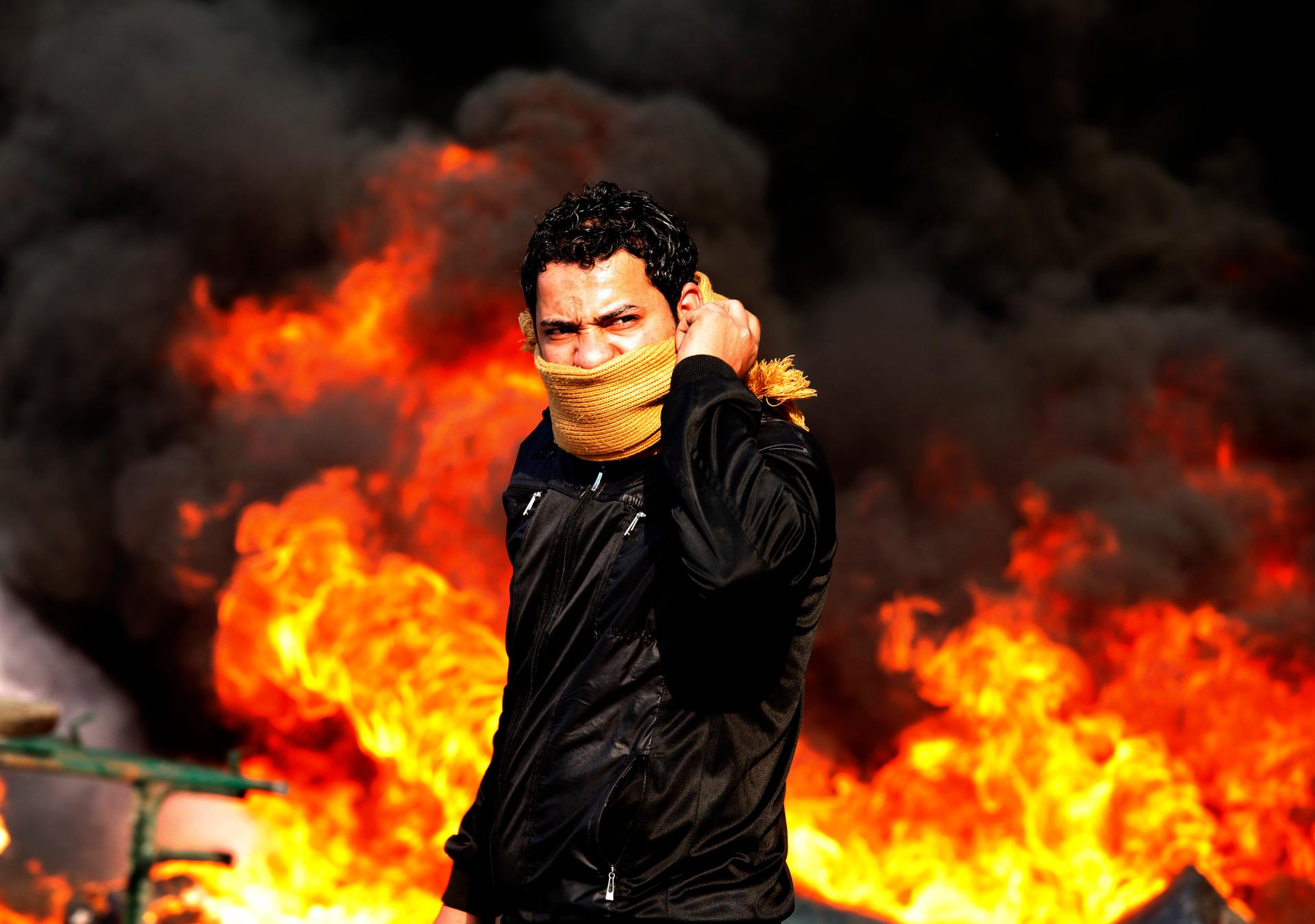Authors argue it’s too early to label the ‘Arab Spring’ a failure
A protester stands in front of a burning barricade during a demonstration in Cairo January 28, 2011.
Five years later, the “Arab Spring” is more often called the “Arab Uprising,” because the protests failed to bloom into new democracies.
Egypt’s new military regime may be worse than the old one; Libya is in chaos; Yemen is the battleground for proxy wars; millions of Syrians are fleeing civil war.
So does that mean the “Arab Spring” should be considered a failure? Conventional wisdom says “yes.” But the authors of two new books say it’s far too early to reach that conclusion.
Robert Worth, author of the new book “A Rage for Order” covered the uprisings. “What we witnessed in 2011 was the end of something — a kind of collapse of the states in the region,” Worth said. “And what we haven’t seen much of is what comes next, there’s very little sense of of rebirth and that’s obviously intensely unsettling.”
But any notions that popular protests fueled by social media would somehow transform dictatorships into robust democracies were “wildly unrealistic expectations,” Worth said.
Foreign policy circles and Washington, DC, think-tanks focus on whether US intervention could have propped up democracy movements. They ask whether Arab countries were ready for democracy. Some analysts argue autocratic rule is much preferred to failed state chaos.
Marc Lynch, author of “The New Arab Wars” and a professor at George Washington University, said those are the wrong lessons to draw. Revolutions take decades, not five years. Especially in countries where autocrats have done everything they can to destroy the framework for political parties.
“We shouldn’t have been surprised that regimes fought back so hard,” Lynch said. “That doesn’t mean they’re succeeding. They’ve managed to destroy a lot and beat back the initial challenge, but I see this generational change as this enormous wave that’s reshaping the entire region, and I see the regimes right now as really just holding on. But they’re not stronger than they were five years ago — in fact they’re considerably weaker.
This week, small numbers of Egyptians took to the streets — or tried to anyway — in protest of recent government decisions. The security apparatus of President Abdel Fattah el-Sisi handily dispersed marchers with tear gas and prevented people from congregating at pre-arranged Cairo protest spots.
But the massive turnout of security forces and riot police reinforced the image of Sisi, a former Egyptian general, as a military strongman as despotic as his predecessors pushed out of office by popular uprisings.
“They’re still challenging the regime, but they’re doing so at a time when formal institutional politics are shattered,” Lynch said. “As this next wave of protests hits, as I’m sure it will, there’s going to be very few things in place to hold that into something like democracy or formal politics. I’m afraid it’s going to be more violent and less constructive.”
This story was first published as an interview on To The Point with Warren Olney.
